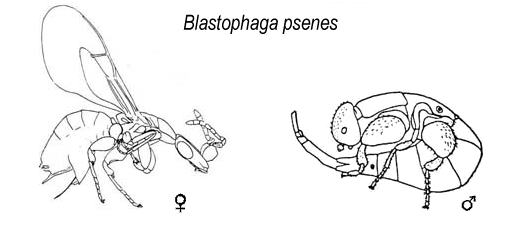|
Magnes (comic Poet)
Magnes (Greek: Μάγνης) was an Athenian comic poet of the 5th century BC. Magnes and his contemporary Chionides are the earliest comic poets for whom victories are recorded in the literary competition of the Dionysia festival. Titles of his comedies: *''Βαρβίτιδες'' (Barbitides), Guitarists of Barbiton *''Βάτραχοι'' ( Batrachoi), Frogs *''Γαλεομυομαχία'' (Galeomyomachia), Battle of Cats and Mice *''Διόνυσος'' (Dionysos), Dionysus *''Λυδοί'' ( Lydoi), Lydians *''Ὄρνιθες'' (Ornithes), Birds *''Πιτακίς ή Πυτακίδης'' (Pitakis or Pytakidis, related to Pita, Pytia or Pittakion, Wax tablet) *''Ποάστρια'' (Poastria), Female Farm-Worker (derived from Poa) *''Ψῆνες'' (Psenes), Fig wasps ReferencesMagnes''Dictionary of Greek and Roman Biography and Mythology''Magnes * [...More Info...] [...Related Items...] OR: [Wikipedia] [Google] [Baidu] |
Ancient Greek
Ancient Greek includes the forms of the Greek language used in ancient Greece and the ancient world from around 1500 BC to 300 BC. It is often roughly divided into the following periods: Mycenaean Greek (), Dark Ages (), the Archaic period (), and the Classical period (). Ancient Greek was the language of Homer and of fifth-century Athenian historians, playwrights, and philosophers. It has contributed many words to English vocabulary and has been a standard subject of study in educational institutions of the Western world since the Renaissance. This article primarily contains information about the Epic and Classical periods of the language. From the Hellenistic period (), Ancient Greek was followed by Koine Greek, which is regarded as a separate historical stage, although its earliest form closely resembles Attic Greek and its latest form approaches Medieval Greek. There were several regional dialects of Ancient Greek, of which Attic Greek developed into Koine. Dia ... [...More Info...] [...Related Items...] OR: [Wikipedia] [Google] [Baidu] |
Pytia
Pytia (Greek: Πυτιά, Ancient Greek: Πυετία Pyetia also) is curdled milk Curdling is the breaking of an emulsion or colloid into large parts of different composition through the physio-chemical processes of flocculation, creaming, and coalescence. Curdling is purposeful in the production of cheese curd and tofu; un ... obtained from an animal's stomach, containing (and used as) rennet. References *Arist.HA522b5, PA676a6, GA739b22, Nic.Al.68, 323.Pytia A Greek-English LexiconFood in the Ancient World from A to Z b Santorini.gr Greek cuisine Dair ... [...More Info...] [...Related Items...] OR: [Wikipedia] [Google] [Baidu] |
Ancient Greek Dramatists And Playwrights
Ancient history is a time period from the History of writing, beginning of writing and recorded human history to as far as late antiquity. The span of recorded history is roughly 5,000 years, beginning with the Sumerian language, Sumerian cuneiform script. Ancient history covers all continents inhabited by humans in the period 3000 BCAD 500. The three-age system periodizes ancient history into the Stone Age, the Bronze Age, and the Iron Age, with recorded history generally considered to begin with the Bronze Age. The start and end of the three ages varies between world regions. In many regions the Bronze Age is generally considered to begin a few centuries prior to 3000 BC, while the end of the Iron Age varies from the early first millennium BC in some regions to the late first millennium AD in others. During the time period of ancient history, the world population was already Exponential growth, exponentially increasing due to the Neolithic Revolution, which was in full pro ... [...More Info...] [...Related Items...] OR: [Wikipedia] [Google] [Baidu] |
5th-century BC Athenians
The 5th century is the time period from 401 ( CDI) through 500 ( D) ''Anno Domini'' (AD) or Common Era (CE) in the Julian calendar. The 5th century is noted for being a period of migration and political instability throughout Eurasia. It saw the collapse of the Western Roman Empire, which came to an end in 476 AD. This empire had been ruled by a succession of weak emperors, with the real political might being increasingly concentrated among military leaders. Internal instability allowed a Visigoth army to reach and ransack Rome in 410. Some recovery took place during the following decades, but the Western Empire received another serious blow when a second foreign group, the Vandals, occupied Carthage, capital of an extremely important province in Africa. Attempts to retake the province were interrupted by the invasion of the Huns under Attila. After Attila's defeat, both Eastern and Western empires joined forces for a final assault on Vandal North Africa, but this campaign was ... [...More Info...] [...Related Items...] OR: [Wikipedia] [Google] [Baidu] |
Poetics (Aristotle)
Aristotle's ''Poetics'' ( grc-gre, Περὶ ποιητικῆς ''Peri poietikês''; la, De Poetica; c. 335 BCDukore (1974, 31).) is the earliest surviving work of Greek dramatic theory and first extant philosophical treatise to focus on literary theory. In this text Aristotle offers an account of ποιητική, which refers to poetry and more literally "the poetic art," deriving from the term for "poet; author; maker," ποιητής. Aristotle divides the art of poetry into verse drama (to include comedy, tragedy, and the satyr play), lyric poetry, and epic. The genres all share the function of mimesis, or imitation of life, but differ in three ways that Aristotle describes: # Differences in music rhythm, harmony, meter and melody. # Difference of goodness in the characters. # Difference in how the narrative is presented: telling a story or acting it out. The surviving book of ''Poetics'' is primarily concerned with drama, and the analysis of tragedy constitutes t ... [...More Info...] [...Related Items...] OR: [Wikipedia] [Google] [Baidu] |
Aristotle
Aristotle (; grc-gre, Ἀριστοτέλης ''Aristotélēs'', ; 384–322 BC) was a Greek philosopher and polymath during the Classical period in Ancient Greece. Taught by Plato, he was the founder of the Peripatetic school of philosophy within the Lyceum and the wider Aristotelian tradition. His writings cover many subjects including physics, biology, zoology, metaphysics, logic, ethics, aesthetics, poetry, theatre, music, rhetoric, psychology, linguistics, economics, politics, meteorology, geology, and government. Aristotle provided a complex synthesis of the various philosophies existing prior to him. It was above all from his teachings that the West inherited its intellectual lexicon, as well as problems and methods of inquiry. As a result, his philosophy has exerted a unique influence on almost every form of knowledge in the West and it continues to be a subject of contemporary philosophical discussion. Little is known about his life. Aristotle was born in th ... [...More Info...] [...Related Items...] OR: [Wikipedia] [Google] [Baidu] |
Dictionary Of Greek And Roman Biography And Mythology
The ''Dictionary of Greek and Roman Biography and Mythology'' (1849, originally published 1844 under a slightly different title) is an encyclopedia/biographical dictionary. Edited by William Smith, the dictionary spans three volumes and 3,700 pages. It is a classic work of 19th-century lexicography. The work is a companion to Smith's ''Dictionary of Greek and Roman Antiquities'' and '' Dictionary of Greek and Roman Geography''. Authors and scope The work lists thirty-five authors in addition to the editor, who was also the author of the unsigned articles. The other authors were classical scholars, primarily from Oxford, Cambridge, Rugby School, and the University of Bonn, but some were from other institutions. Many of the mythological entries were the work of the German expatriate Leonhard Schmitz, who helped to popularise German classical scholarship in Britain. With respect to biographies, Smith intended to be comprehensive. In the preface, he writes: Much of the value ... [...More Info...] [...Related Items...] OR: [Wikipedia] [Google] [Baidu] |
Fig Wasp
Fig wasps are wasps of the superfamily Chalcidoidea which spend their larval stage inside figs. Most are pollinators but others simply feed off the plant. The non-pollinators belong to several groups within the superfamily Chalcidoidea, while the pollinators are in the family Agaonidae. While pollinating fig wasps are gall-makers, the remaining types either make their own galls or usurp the galls of other fig wasps; reports of their being parasitoids are considered dubious. History Aristotle recorded in his ''History of Animals'' that the fruits of the wild fig (the caprifig) contain ''psenes'' (fig wasps); these begin life as grubs (larvae), and the adult ''psen'' splits its "skin" (pupa) and flies out of the fig to find and enter a cultivated fig, saving it from dropping. He believed that the ''psen'' was generated spontaneously; he did not recognise that the fig was reproducing sexually and that the ''psen'' was assisting in that process. Taxonomy The fig wasps are a pol ... [...More Info...] [...Related Items...] OR: [Wikipedia] [Google] [Baidu] |
Wax Tablet
A wax tablet is a tablet made of wood and covered with a layer of wax, often linked loosely to a cover tablet, as a "double-leaved" diptych. It was used as a reusable and portable writing surface in Antiquity and throughout the Middle Ages. Cicero's letters make passing reference to the use of ''cerae'', and some examples of wax-tablets have been preserved in waterlogged deposits in the Roman fort at Vindolanda on Hadrian's Wall. Medieval wax tablet books are on display in several European museums. Writing on the wax surface was performed with a pointed instrument, a stylus. A straight-edged spatula-like implement (often placed on the opposite end of the stylus tip) would be used as an eraser. The modern expression of ''"a clean slate"'' equates to the Latin expression ''"tabula rasa"''. Wax tablets were used for a variety of purposes, from taking down students' or secretaries' notes to recording business accounts. Early forms of shorthand were used too. Use in antiquity ... [...More Info...] [...Related Items...] OR: [Wikipedia] [Google] [Baidu] |
Pita
Pita ( or ) or pitta (British English), is a family of yeast-leavened round flatbreads baked from wheat flour, common in the Mediterranean, Middle East, and neighboring areas. It includes the widely known version with an interior pocket, also known as Arabic bread ( ar, خبز عربي; ''khubz ʿarabī''). In the United Kingdom, Greek bread is used for pocket versions such as the Greek pita, and are used for barbecues to a souvlaki wrap. The Western name ''pita'' may sometimes be used to refer to various other types of flatbreads that have different names in their local languages, such as numerous styles of Arab ''khubz'' (bread). History Pita has roots in the prehistoric flatbreads of the Middle East. There is evidence from about 14,500 years ago, during the Stone Age, that the Natufian people in what is now Jordan made a kind of flatbread from wild cereal grains. Ancient wheat and barley were among the earliest domesticated crops in the Neolithic period of about 10,000 ye ... [...More Info...] [...Related Items...] OR: [Wikipedia] [Google] [Baidu] |
Athenian
Athens ( ; el, Αθήνα, Athína ; grc, Ἀθῆναι, Athênai (pl.) ) is both the capital and largest city of Greece. With a population close to four million, it is also the seventh largest city in the European Union. Athens dominates and is the capital of the Attica region and is one of the world's oldest cities, with its recorded history spanning over 3,400 years and its earliest human presence beginning somewhere between the 11th and 7th millennia BC. Classical Athens was a powerful city-state. It was a centre for the arts, learning and philosophy, and the home of Plato's Academy and Aristotle's Lyceum. It is widely referred to as the cradle of Western civilization and the birthplace of democracy, largely because of its cultural and political influence on the European continent—particularly Ancient Rome. In modern times, Athens is a large cosmopolitan metropolis and central to economic, financial, industrial, maritime, political and cultural life in Greec ... [...More Info...] [...Related Items...] OR: [Wikipedia] [Google] [Baidu] |
Ornithes
''The Birds'' ( grc-gre, Ὄρνιθες, Órnithes) is a comedy by the Ancient Greek playwright Aristophanes. It was performed in 414 BC at the City Dionysia in Athens where it won second place. It has been acclaimed by modern critics as a perfectly realized fantasy remarkable for its mimicry of birds and for the gaiety of its songs. Unlike the author's other early plays, it includes no direct mention of the Peloponnesian War and there are few references to Athenian politics, and yet it was staged not long after the commencement of the Sicilian Expedition, an ambitious military campaign that greatly increased Athenian commitment to the war effort. In spite of that, the play has many indirect references to Athenian political and social life. It is the longest of Aristophanes's surviving plays and yet it is a fairly conventional example of Old Comedy. The plot of the play revolves around Pisthetaerus, an Athenian who convinces the birds to create a great city in the sky, and ... [...More Info...] [...Related Items...] OR: [Wikipedia] [Google] [Baidu] |








